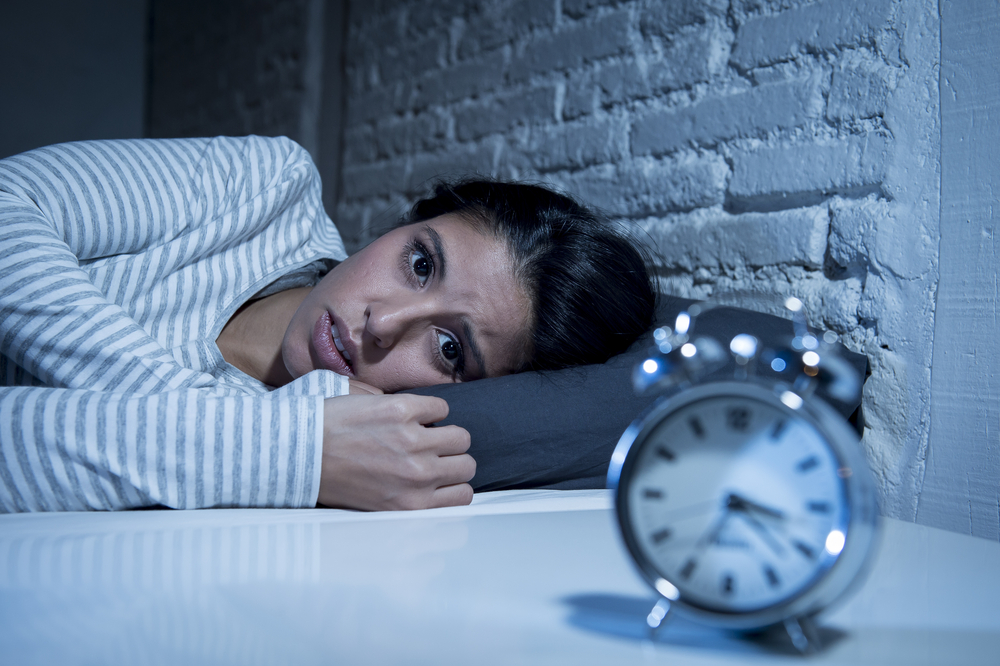Fatigue or tiredness in cancer patients is one of the common side effects of cancer treatment and the cancer itself. Cancer-related fatigue usually occurs without any exertion.
Fatigue can have a major impact on the quality of life in cancer patients, and thus needs to be addressed appropriately.
What is fatigue?
Fatigue is a constant feeling of extreme tiredness or lack of energy that prevents a person from performing their daily life activities. Fatigue can either be physical, mental, or a combination of both.
Although fatigue is sometimes referred to as tiredness, it is different from just being tired or feeling sleepy. Tiredness or sleepiness can be resolved with enough sleep, exercise, and good nutrition, but if a person is suffering from fatigue, then these tips might not work, and further examination would be required.

Constantly feeling lazy can be a sign of fatigue
What is cancer-related fatigue?
Fatigue that occurs along with cancer or cancer treatment is called cancer-related fatigue (CRF).
CRF can be defined as a distressing, persistent, subjective sense of physical, emotional and/or cognitive tiredness or exhaustion related to cancer or cancer related treatment that is not proportional to recent activity, and interferes with usual functioning.
About 80% to 100% of cancer patients report having fatigue. This is a subjective experience.
Fatigue in cancer patients is different from the occasional tiredness felt by healthy people. Cancer patients may describe it as feeling lethargic, very weak, drained, or ‘washed out’, which is constant. Some patients may feel exhausted to even walk to the bathroom, eat, or even use a TV remote.
This feeling goes away for a short time with rest, but can return with even a few activities. For some cancer patients, fatigue can aggravate other side effects such as pain, nausea, vomiting, or depression.
Cancer-related fatigue can have a major impact on the patient’s physical and mental health, thereby affecting the overall quality of life.
The duration, degree of severity, and frequency of cancer-related fatigue may vary from patient-to-patient. Cancer-related fatigue can last for months, till the cancer treatment lasts or even years after cancer treatment.
What are the symptoms of cancer related fatigue?
The following are the symptoms of cancer-related fatigue:
- Tiredness, which doesn’t get better with sleep
- Tiredness recurs frequently or becomes severe
- Pain in muscles, difficulty in walking short distances or climbing stairs
- Feeling tired during or after an activity
- Arms and legs feel heavy and hard to move
- Spending more time in bed (more than 24 hours)
- Trouble sleeping
- Confusion or lack of concentration
- Difficulty in making decisions
- Exhaustion that affects daily routine, work, or social life

Trouble falling asleep can be a sign of fatigue
Fatigue during cancer treatment
The reason why cancer treatment causes fatigue is not known yet. Fatigue in cancer patients can be influenced by multiple factors like demographic, medical, psychosocial, behavioral, and biological factors, medical comorbidities, medications, nutritional issues, physical deconditioning, mood disturbance, and physical symptoms.
Some studies have shown that fatigue can be caused due to these reasons:
- The extra energy required to repair and heal the body tissues damaged by the treatment
- Accumulation of toxic substances that remain in the body after cancer treatment
- Impact of biologic therapy on the immune system
- Changes in the sleep-wake cycle
Patients who are older, or diagnosed with advanced cancer, or have received more than one type of treatment are more likely to have long-time fatigue.
The fatigue experienced by patients varies according to the type of cancer treatments. Treatments like chemotherapy and radiation therapy are usually given in cycles. Patients usually feel fatigue in the days following therapy. The fatigue may then decrease until the next treatment cycle but usually increases with each cycle.
Some studies suggest that patients have severe fatigue around mid-way through the cycles. Fatigue often decreases after the therapy is completed, but may last for about a month or more, even for years.
A study showed that fatigue was increased by poor sleep and depression in men with prostate cancer before radiation therapy was initiated. Another study suggested that fatigue was increased by the following in women with breast cancer:
- Working while receiving radiation therapy
- Young age
- Being underweight
- Having advanced cancer or other medical conditions
- Having children at home
- Trouble sleeping
- Depression
- Anxiety
Surgery, biologic therapy, and bone marrow transplant can also cause fatigue, which reduces with time.
Factors and conditions contributing to cancer-related fatigue
Cancer-related fatigue can occur due to several factors and conditions; some of which are discussed below:
- Anemia: 7 in 10 patients who undergo chemotherapy experience anemia (reduced blood count and haemoglobin), which can cause fatigue.
- Pain: Chronic, severe pain due to cancer or cancer treatments can increase fatigue.
- Hypothyroidism: Slow metabolism due to underactive thyroid glands may reduce the rate of energy production, leading to fatigue.
- Stress: Stress caused by the diagnosis or treatment, daily activities, and other factors, can worsen fatigue.
- Depression: About 15% to 25% of patients diagnosed with cancer get depressed, which may increase fatigue. Anxiety and depression are the most common psychological causes of fatigue in cancer patients.
- Insomnia: Pain, stress, and worry may not allow the cancer patient to sleep for at least 8 hours, which causes mental and physical fatigue.
- Poor nutrition: Certain treatments may cause nausea, vomiting, change of taste, mouth sores, diarrhoea, etc., resulting in decreased nutrition and fatigue.
- Certain medicines: Drugs used to treat the side effects of cancer therapy such as pain nausea, depression, anxiety can contribute to fatigue.
Other medical conditions that can cause cancer-related fatigue, include:
- Heart problems
- Hormone problems
- Reduced lung and kidney function
- Nerve problems
- Arthritis
Assessing Cancer Related Fatigue
There is no definite test to assess fatigue; fatigue being a subjective experience, self reporting by the patient is the gold standard to assess CRF.
Patients and sometimes the family members are asked to describe the severity of fatigue, the impact of fatigue on daily life, and measures that help with fatigue.
Additionally, the following may be done to assess fatigue:
- Physical examination to look for unusual signs such as loss of muscle strength, trouble breathing, and to check joint movements, walking, and posture
- Common approach to assess fatigue involves asking patients to rate their fatigue on a 0-10 scale, where mild fatigue is indicated as a score of 1 to 2, moderate fatigue as 4 to 6 and severe fatigue as 7 to 10. These include various questions related to fatigue onset, frequency, symptoms, etc.
- Blood tests to evaluate the red blood cell count and to check for anaemia
The assessment for fatigue should be performed at regular intervals , pre-treatment, during the treatment and at post-treatment follow ups to see if there are any patterns in the onset or worsening of the symptoms.The strongest and most consistent predictor of post-treatment fatigue is pre-treatment fatigue
Management of cancer related fatigue
Cancer-related fatigue can be treated with medications if it has an underlying cause. For example, fatigue due to anaemia can be treated by blood transfusions.
Medications can be given to treat depression, insomnia, pain, and other causes. As fatigue can be caused by more than one factor, various approaches for managing fatigue can be employed. Some of these are discussed below:
Physical activity: Being physically active during cancer treatment can help manage fatigue. The physical therapist may help develop a safe exercise plan and the type of exercises appropriate for the patient.

Physical exercise can help reduce fatigue
Nutritional counselling: Poor nutrition can aggravate fatigue. A dietitian can help decide the number of calories and nutrients required by the cancer patient. Nutritional counselling can also benefit patients who have side effects that interfere with eating.
Behavioural therapy: Counselling or mindfulness-based stress reduction can help cancer patients to reduce fatigue. During mental health counselling, one can learn coping methods, relaxation exercises, and stress management techniques which can help overcome fatigue.
Mind-body strategies: Yoga, mindfulness practices, and acupuncture can help some patients deal with cancer-related fatigue. Other mind-body strategies that may help reduce fatigue are music therapy, touch therapy, massage therapy, etc.
Tips for reducing cancer-related fatigue
The following tips can help you combat fatigue:
- Keep a track of your fatigue and plan your day accordingly.
- Schedule rest periods in between the activities.
- Take short naps or breaks during the day, however, avoid resting too much.
- Rearrange your room to avoid trips for the things you need often.
- Ask for help from family or friends to help you with chores or running errands.
- Ask your doctor to change the medicines that may cause fatigue.
- Try to sleep for 7 to 8 hours each night; go to bed and wake up at the same time.
- Avoid caffeine, smoke or harmful fumes, long, hot showers or baths.
- Avoid exercising too late in the evening.

Regular sleeping hours can reduce fatigue
The above-mentioned methods and measures may not help all cancer patients. One must discuss with their healthcare professional to seek help in managing cancer-related fatigue effectively.



